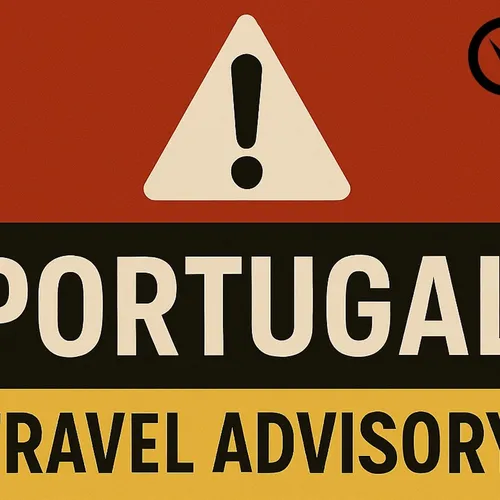Portugal 2025 Travel Guide: Top Safety Tips for Tourists Exploring Lisbon, Porto, and Beyond with Confidence
- Author
- Quiet. Please
- Published
- Wed 23 Jul 2025
- Episode Link
- https://www.spreaker.com/episode/portugal-2025-travel-guide-top-safety-tips-for-tourists-exploring-lisbon-porto-and-beyond-with-confidence--67089634
Listeners planning a trip to Portugal in July 2025 will find the country remains one of Europe’s safest and most welcoming destinations for tourists. The current U.S. Department of State travel advisory ranks Portugal at Level 1, which means travelers should exercise normal precautions. This status is echoed by both Australian and Canadian authorities. Portugal has consistently ranked among the top ten safest countries globally, and cities like Lisbon, Porto, Braga, and Aveiro are all noted for their very low crime rates, hospitable communities, and a vibrant, inviting atmosphere.
However, visitors should be aware that petty crime, particularly pickpocketing and bag snatching, is still a concern in busy tourist centers, transportation hubs, and crowded areas such as outdoor restaurants, popular trams, and beaches, especially around Lisbon and Porto. To minimize risks, keep personal items close, avoid carrying large amounts of cash or showing expensive jewelry, always secure passports and travel documents, and select well-lit ATMs. When driving, do not leave valuables in cars, as break-ins frequently target rental vehicles displaying visible stickers or foreign plates.
Portuguese law requires everyone to carry identification at all times. While it is common for listeners to carry a digital photo of their passport for convenience, especially since police can request identification on the spot, having the original available is best if feasible. Drinking alcohol in public, such as in parks, streets, or beaches—especially in districts of Lisbon—is prohibited and subject to fines up to €200, with consumption only allowed in licensed establishments. Walking on protected sand dunes along the Portuguese coastline, particularly in regions like the Algarve and Costa da Caparica, is forbidden; clear signage is posted, and fines start at €25 to protect the local ecosystem.
Home and accommodation burglaries, while infrequent, do occur, especially in major cities and coastal spots—so always secure doors and windows, especially in vacation rentals. Vehicle theft and break-ins are also reported in tourist-heavy neighborhoods. Booking lodgings with good security and not advertising your absence are recommended precautions. When visiting night venues or festivals, never leave drinks unattended or accept drinks from strangers, and always use official taxis from designated queues or kiosks.
As of July 2025, there are no unusual disease outbreaks or specific health risks in Portugal. Adhering to recommended vaccinations, buckling seatbelts, wearing helmets on two-wheeled vehicles, and avoiding rural roads at night remain wise habits. Travelers should remain alert to seasonal risks as high summer temperatures often lead to wildfires, particularly in rural inland areas as seen in previous years. Local authorities provide updates and guidance in the event of extreme heat or fire hazards—monitor local news and always heed official advice if incident alerts are issued.
Lisbon and Porto currently levy per-person, per-night local tourist taxes, so listeners should check with accommodations before booking and factor these fees into their travel budget.
Portugal’s vibrant culture, natural beauty, and outstanding safety reputation continue to make it a standout choice. Exercising sensible precautions, vigilance with belongings, and respect for local regulations will help visitors enjoy a secure and memorable Portuguese adventure this season. Always consult the latest official guidance and travel advisories before departure, as the situation can change rapidly.
